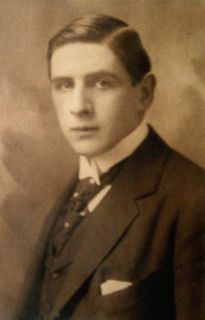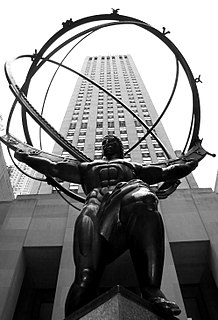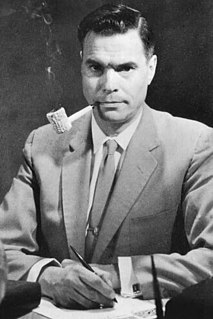A Quote by Paulo Coelho
Evil had to manifest itself and fulfill its role, so that ultimately Good could prevail. [...] Evil needs to manifest itself, for them to understand the value of Good.
Related Quotes
The creed of evil has been, since the beginnings of highly industrialized society, not only a precursor of barbarism but a mask of good. The worth of the latter was transferred to the evil that drew to itself all the hatred and resentment of an order which drummed good into its adherents so that it could with impunity be evil.
The effects which follow too constant and intense a concentration upon evil are always disastrous. Those who crusade, not for God in themselves, but against the devil in others, never succeed in making the world better, but leave it either as it was, or sometimes even perceptibly worse than it was, before the crusade began. By thinking primarily of evil we tend, however excellent our intentions, to create occasions for evil to manifest itself.
The maker of kitsch does not create inferior art, he is not an incompetent or a bungler, he cannot be evaluated by aesthetic standards; rather, he is ethically depraved, a criminal willing radical evil. And since it is radical evil that is manifest here, evil per se, forming the absolute negative pole of every value-system, kitsch will always be evil, not just kitsch in art, but kitsch in every value-system that is not an imitation system.
In this world, there is no absolute good, no absolute evil," the man said. "Good and evil are not fixed, stable entities, but are continually trading places. A good may be transformed into an evil in the next second. And vice versa. Such was the way of the world that Dostoevsky depicted in The Brothers Karamazov. The most important thing is to maintain the balance between the constantly moving good and evil. If you lean too much in either direction, it becomes difficult to maintain actual morals. Indeed, balance itself is the good.
This is a world of good and evil. Wherever there is good, evil follows, but beyond and behind all these manifestations, all these contradictions, the Vedanta finds out that Unity. It says, "Give up what is evil and give up what is good." What remains then? Behind good and evil stands something which is yours, the real you, beyond every evil, and beyond every good too, and it is that which is manifesting itself as good and bad. Know that first, and then and then alone you will be a true optimist, and not before; for then you will be able to control everything.
Evil conquered?' said Gwydion. 'You have learned much, but learn this last and hardest of lessons. You have conquered only the enchantments of evil. That was the easiest of your tasks, only a beginning, not an ending. Do you believe evil itself to be so quickly overcome? Not so long as men still hate and slay each other, when greed and anger goad them. Against these even a flaming sword cannot prevail, but only that portion of good in all men's hearts whose flame can never be quenched.
For the first time in history, the rational and the good are fully armed in the battle against evil. Here we finally find the answer to our paradox; now we can understand the nature of the social power held by evil. Ultimately, the evil, the irrational, truly has no power. The evil men’s control of morality is transient; it lives on borrowed time made possible only by the errors of the good. In time, as more honest men grasp the truth, evil’s stranglehold will be easily broken.
When one has once accepted and absorbed Evil, it no longer demands the unfitness of the means. The ulterior motives with which youabsorb and assimilate Evil are not your own but those of Evil.... Evil is whatever distracts. Evil knows of the Good, but Good does not know of Evil. Knowledge of oneself is something only Evil has. One means that Evil has is the dialogue.... One cannot pay Evil in installments--and one always keeps on trying to.
What I want you to understand, is the full evil of those who claim to have become convinced that this earth, by its nature, is a realm of malevolence where the good has no chance to win. Let them check their premises. Let them check their standards of value. Let them check - before they grant themselves the unspeakable license of evil-as-necessity - whether they know what is the good and what are the conditions it requires.
The rifle itself has no moral stature, since it has no will of its own. Naturally, it may be used by evil men for evil purposes, but there are more good men than evil, and while the latter cannot be persuaded to the path of righteousness by propaganda, they can certainly be corrected by good men with rifles.





































